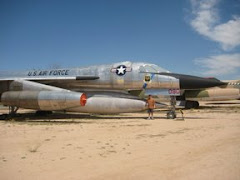Wednesday, May 21, 2014
Agricultural Aircraft
I tend to focus on military aviation here in Washington, I suppose, largely because that is where my interest has always laid. Today, however, I may add another aspect to this blog. Agricultural aircraft. Those aircraft, mainly sprayers, that help Washington's farmers keep the crops coming in.
Today, I happened to be in Wapato, Washington. Just South of Wapato is a small private airfield. I have been past it a couple times, but no one was in evidence. Today, however, it was different. The owner was there and I explained my somewhat illogical wish to photograph his aircraft. He has two Air Tractors. Both sporting Pratt & Whitney R-1340s.
He didn't seemed surprised in the least, and, indeed, seemed happy to share. He talked a little about them and how loud they are. He said that some people just are not as fond of his aircraft as enthusiasts like myself. He also mentioned that both engines in his aircraft have different personalities. One doesn't leak at all, the other has leaks, but no one can figure out why or where and all they can say is it's normal. Some have said that if a round engine is not leaking, it's because it's out of oil.
I took my pictures and then asked if I could come back. He said that would be great. I'm thinking some sunrise photos would really rock.
I did a little research and the place he mentioned really does a pretty good business fixing up these old round engines. It is called Covington Aircraft. They do aircraft engine maintenance, repair and overhauls. They work on everything from the shiniest new turbine engines to the old and reliable radials. Particularly the R-1340s and the R-985s.
These same R-1340s ran in everything from the Boeing P-26 to the Gee Bee Racers, the Ford Tri-Motor, Lockheed Electra and Vega, and the venerable North American T-6 Texan trainer of WWII. The first R-1340s were built in the mid-1920s, and had a production of about 36,000 units! The serial on one of these was 26,000 or so.
He told me a little about what he sprays. Well, one of his sons is the pilot. They spray vegetable crops in the lower Yakima Valley. Everything from peas to peppers and beans. Particularly he mentioned a couple local fruit stand/family operations. I've always watched sprayers and thought they must have the best job ever, they get to pull high G turns and bank and climb like low level fighter pilots, but they don't have to deal with being shot at. Seems like a legit lifestyle to me.
Friday, May 9, 2014
Yep! Another one!!
USS Saratoga, CV-60, is to be scrapped in Brownsville, Texas, not far from former USS Forrestal. Given my low placement among the US Navy's hierarchy, I don't know anything more than what I saw in this article, but one wonders why the USN is getting rid of its big ships recently. Are they making room for the expected downsizing? or perhaps they have finally come to a decision concerning the scrapping of ships they do not plan to use. There may be other things at play. I hope that someone saves important parts of her for a museum or display.
Subscribe to:
Comments (Atom)








